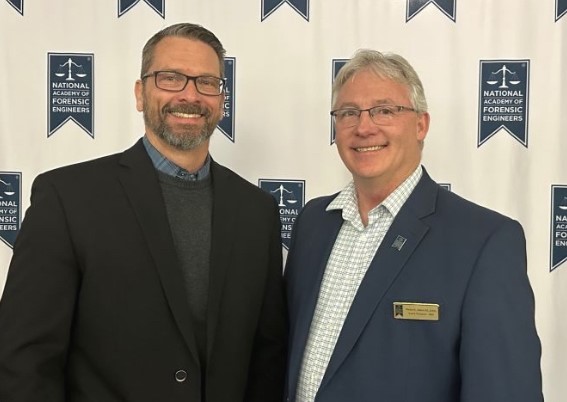

This year the board is recruiting a licensed Professional Engineer for service on the Board. The board, along with the Governor (who makes these appointments), continue their commitment to having a diverse Board that reflects our community.
They are always interested in geographic diversity as well, so any Professional Engineers outside of the Metro is appreciated BUT not required. Click here for more details.
While there is no deadline listed if you are interested, you are encouraged to apply ASAP.
|
|
Volunteers are also being sought for NSPE National Committees.
Learn More About NSPE's Committees and Apply by June 4
Note: You must log-in with NSPE credentials to view the NSPE committee page. When you are ready to apply you will be brought to the application portal. Appointments are made by NSPE's incoming national president, Julia Harrod, P.E., F.NSPE. Appointments will be confirmed by the first week of August.
Girls Exploring Science, Technology, Engineering and Math (GESTEM)
Our partners at the Society of Women Engineers Rocky Mountain Section invites participation in Girls Exploring Science, Technology, Engineering, and Math (GESTEM
GESTEM is an exciting event that introduces middle school girls to the wide range of opportunities in potential careers in STEM fields through hands-on workshops and interaction with engineering professionals. RMS hosts 1,000+ girls at the Auraria campus at no cost to the girls to attend. This one-day, large-scale outreach event will be held on Wednesday, May 21st, at the Denver Auraria campus. They are actively seeking volunteer guides.
Volunteer as a group guide. Group guides will lead a group of 8-10 students through their three hands-on workshops. This is a wonderful opportunity to interact one-on-one with the students! To guide students from workshop to workshop, they need over 150 guides. swe-rms.swe.org/gestem/volunteers/
For more information on how you are helping to make a difference, we invite you to visit our website at swe-rms.swe.org/.
Denver Botanic Gardens Tour
NSPE-CO Central Chapter hosts a free tour of the Denver Botanic Gardens on Thursday, May 29th. Registration for the tour has closed.
The tour will include the Denver Botanic Gardens' Conservatory Building and Freyer-Newman Center and a discussion of the challenges in construction in an urban garden.
Free parking is available in the public parking garage. Consider car pooling!
The group will meet at the Visitor Center by 1:45 pm so we can start the tour promptly at 2:00 pm. Sturdy, closed-toed shoes are required. Most of the tour is indoors but dress appropriately for the weather.
Following the tour, feel free to join NSPE-CO for at Culinary Dropout 4141 E 9th Ave, Denver, CO 80220. The post tour happy hour is optional.
 |
NSPE-CO Members Michael Aitken, P.E., F.NSPE and Ben Railsback , P.E., F.NSPE have been installed as President and Vice President of the National Academy of Forensic Engineers (NAFE). NAFE is directly associated with NSPE. Both Michael and Ben have previously served as NSPE-CO president. Michael was NSPE national president, and Ben served on the national NSPE Board of Directors. To qualify for full membership in the National Academy of Forensic Engineers, a candidate must be a licensed professional engineer and a member of NSPE and a technical society. He or she must have forensic engineering experience in addition to references from attorneys, senior claims managers, or NAFE members who are personally familiar with his or her forensic practice and experience. Full members are board certified in forensic engineering through the CESB. There are three levels of board-certified membership: member, senior member, and fellow. Left: Railsback (Vice President NAFE) Right: Michael Aitken (President, NAFE). Thanks to Paul D. Tucker for the photo. |
|
|
|
Civil Engineer II/III Transmission and Distribution - Fort Collins-Loveland Water District
Click here for more information
Click below to go to the Job Posting page